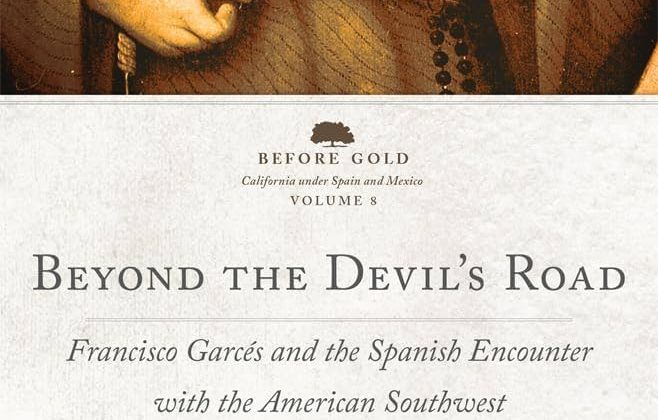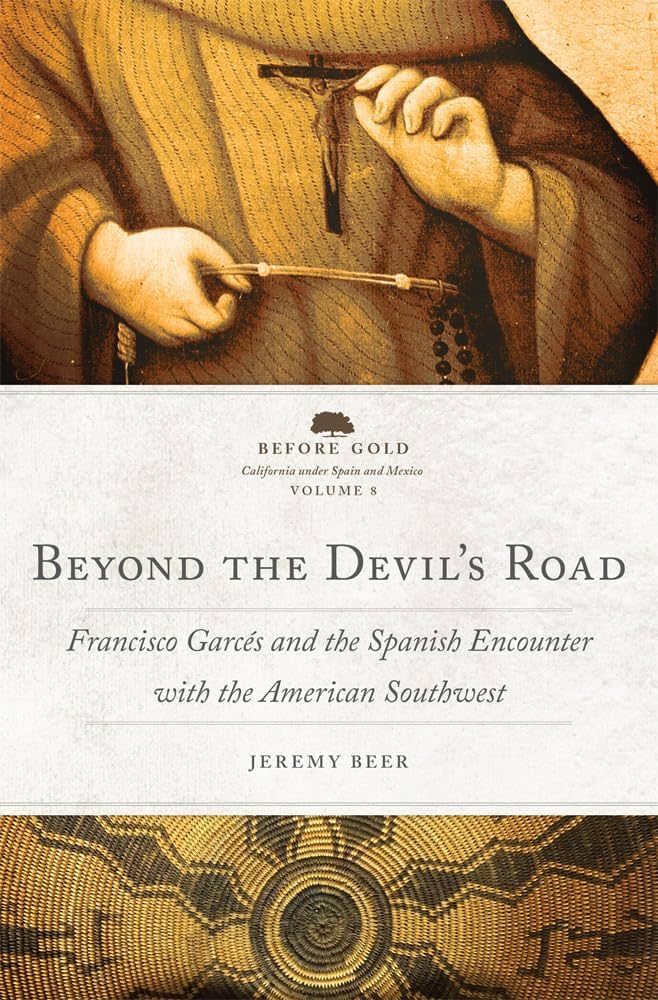

Jeremy Beer is Co-Founder and Executive Chairman of AmPhil. This interview is based on his new book, Beyond the Devil’s Road: Francisco Garcés and the Spanish Encounter with the American Southwest (University of Oklahoma Press, 2024).
JF: What led you to write Beyond the Devil’s Road?
JB: Quite by happenstance, I picked up a copy of Robert Kittle’s Franciscan Frontiersmen at a bookstore in California. I knew next to nothing about the Spanish entry into what would become the American Southwest, but one of the figures highlighted by Kittle just leapt off the page as a highly attractive and compelling figure: Francisco Garcés. When I discovered that a number of people had wanted to write a full biography of Garcés but had never gotten around to it, I thought I would see if I could do the job. I figured that researching and writing about Father Garcés would allow me to learn more about the history of the Southwest (where I live, and which I love), about the native peoples that lived (or live) here, and about the Catholic missions. All that fascinated me, and Garcés’s extraordinarily adventurous life offered a nice lens through which to view those larger topics.
JF: In 2 sentences, what is the argument of Beyond the Devil’s Road?
JB: Although he is utterly obscure outside the specialized field of Borderlands Studies, Francisco Garcés was one of the most courageous—and likeable—pathfinders in the history of the American continent. His unparalleled journeys played a key role in the Spanish settlement of California, provided us with precious ethnological data, and anticipated a more humane and effective missionary methodology.
JF: Why do we need to read Beyond the Devil’s Road?
JB: Because the story of Europeans in America is not just an English, Protestant, East-to-West story. Most Americans have little knowledge about the Spanish encounter with the American Southwest, about how the missions did and didn’t work, about the various Indian peoples that lived in the region and what their cultures were like, about what Spain was trying to achieve, and so on. That’s one reason to read this book. Another is that we are currently marking, or about to mark, the 250th anniversary of two highly consequential expeditions; the Anza expedition of 1774, which was the first to connect northern Sonora and today’s southern Arizona to the California coast by an overland route, and the Anza expedition of 1775–76, which brought the first real group of Spanish settlers to California and led to the establishment of San Franisco. Garcés paved the way for and participated in both expeditions. For Americans, perhaps especially those with Spanish and/or native heritages, 1776 has importance beyond what happened in Philadelphia.
JF: Why and when did you become an American historian?
JB: My doctorate is in psychology, so I can make no claim to being a real historian. I’m an amateur in the field, with a particular interest in biography and a passion for telling the stories of those who have been unjustly neglected or misunderstood.
JF: What is your next project?
JB: I’m in the early stages of a book on the American saints—those thirteen men and women who were born, worked, or died within the boundaries of the contemporary United States and have been canonized in the Roman Catholic Church. Many of them are obscure even to devoted Catholics. Raise your hand if you know anything about St. Rose Philippine Duchesne!
JF: Thanks, Jeremy!